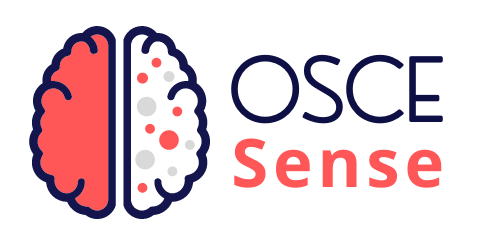
Orthopaedic station 3
Station 3
My shoulders are mighty stiff!
Candidate Instructions
Setting:
You are a Foundation Year doctor working in a GP practice. This patient has presented with neck and shoulder stiffness.
Name: Julie Martin
Tasks:
1. Take a history from the patient.
2. Give your leading diagnosis to the examiner.
3. Give your initial investigations to the examiner.
3. Answer any examiner questions.
Simulated Patient Instructions
Briefing
Diagnosis: Polymyalgia Rheumatica.You are Julie Martin, a 56 year old female.
You have presented to the GP surgery with neck and shoulder stiffness.
Opening statement
“I have had this stiffness in my neck and shoulders for about the last 15 days, I thought I’d pulled a muscle as it came on quite suddenly but it’s not getting any better”
Information to Give Freely
You have chronic knee pain but over the past few weeks it’s been much worse. You’ve not had any trauma but you’ve been working extra shifts to try and complete a project at work (as a Farmer). You think this is why it’s more sore and you think you’ve “overdone it”.
Presenting complaint
Site - initially in the neck but now spreading to the shoulders.Onset - 15 days ago. You were sat at your desk working when it came on over hours. You haven’t lifted anything heavy or done any unusual exercise.
Character - constant aching pain.
Radiation - neck and both shoulders.
Associated symptoms -
- you feel very fatigued
- there is stiffness all day
- no swelling
- no crepitus
- no redness
- no heat
- no locking
Exacerbating/relieving factors - you tried paracetamol and it's not helped.
Severity - it’s interfering with your life as you work in a laboratory and need to use your arms for your work 7 or 8/10
Other details
- No trauma
Past Medical History
Previous similar episodes - NeverPMH - Previous treated breast cancer, you were given the all clear 7 years ago.
Previous surgeries - mastectomy
Drug History
Prescribed - nilOver the counter - you occasionally take paracetamol when your wife prompts you (for knee pain)
Allergies - no known allergies
Family History
NilSocial History
Smoking history - nilAlcohol - you never drink
Drug use - never used any illicit drugs
Employment - works as a farmer
Fully independent
Systems Review
General/red flags - NO fevers
Neuro - NO numbness or weakness (around or distal to the knee)
Systemic - NO fevers or rashes
Resp - NO resp symptoms
Skin - NO rashes or psoriasis
Eyes - NO symptoms related to iritis / scleritis
GI - NO bowel upset
GU - NO urinary symptoms or penile discharge
Joints - Other joint involvement = mild right hip pain present for years (although this is not causing you any trouble and if asked about it change the subject back to your knee), NO calf pain or swelling
Ideas / Concerns / Expectation
Ideas - “I have no idea what it is but i’d like it solved today so I can get back to work”Concerns - “I don’t have time to rest, the harvest is coming up”
Expectations - “I’ll be going back to work once I’ve left the clinic”
Discussion / Questions
There is no further interaction after the history in this station. Please ensure you play up that this has been chronic pain but it’s got worse with increased activity recently. The candidate's history should focus on asking a series of questions to rule our more serious pathologies such as septic arthritis or gout.Start the Timer and Begin
Intro
Presenting complaint
Past Medical History
Drug History
Family History
Social History
Systems Reviews
Ideas, Concerns, Expectations
Diagnosis
Examiner Instruction
The examiner should now prompt the candidate to give their investigations and ask the questi
Assessment and Management
Investigation
Examiner questions 1 - “What is the main pharmaceutical treatment of PMR?”
Examiner questions 2 - “Can you give me 4 side effects of long term steroid use”
Which emergency condition associated with a headache is often found in patients with PMR?
Submit for Scoring
Summary
There are 5 core criteria for diagnosing PMR
Bilateral shoulder or pelvic girdle pain.
Age >50
Duration >2 weeks
Stiffness >30 minutes in the morning
Evidence of raised ESR / CRP on bloods
However it is also a diagnosis of exclusion and dangerous differentials which present similarly must be ruled out, hence the apparent over investigation from the outset. None the less a reasonable course of action would be to start steroid therapy whilst investigations were pending. If there is evidence of temporal arteritis it is an emergency and advice from rheumatology should be sought immediately.
Luckily our patient was started on a steroid regime which was gradually weaned over the next 3 months. The response to steroids was remarkable and Julie was able to return to her normal activities of daily living, much to her delight!
Tags | Ortho | Orthopaedics | PMR | Polymyalgia Rheumatica | Joint Pain | Neck pain
Station Written by: Dr Joanna Mantio
Peer Reviewed by: Dr Benjamin Armstrong
Want to suggest an edit?
Email us at oscesense@outlook.com
